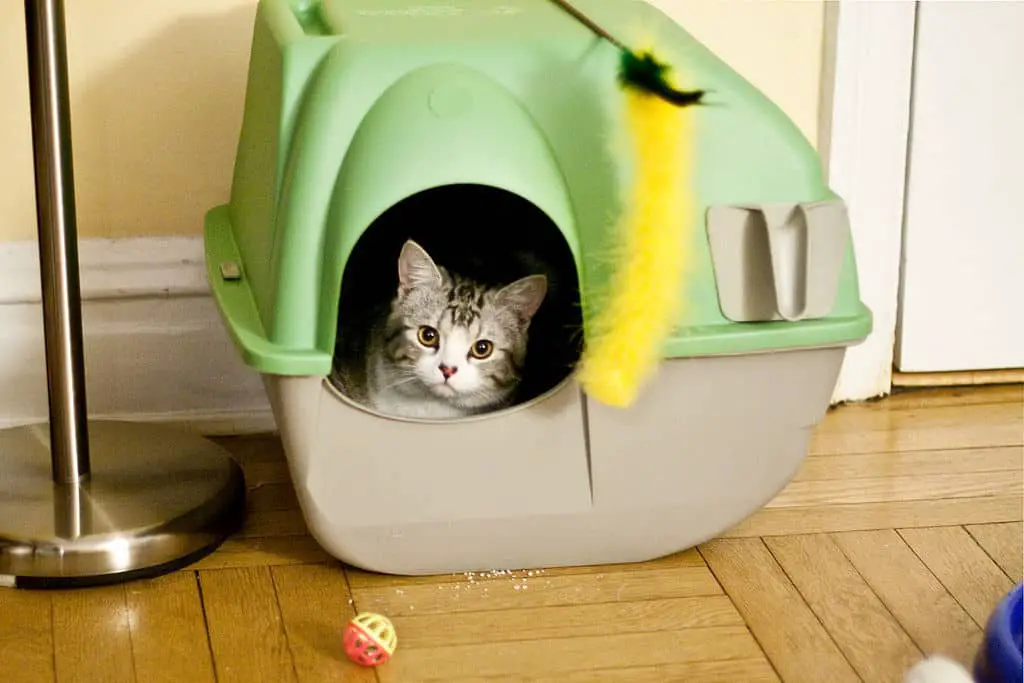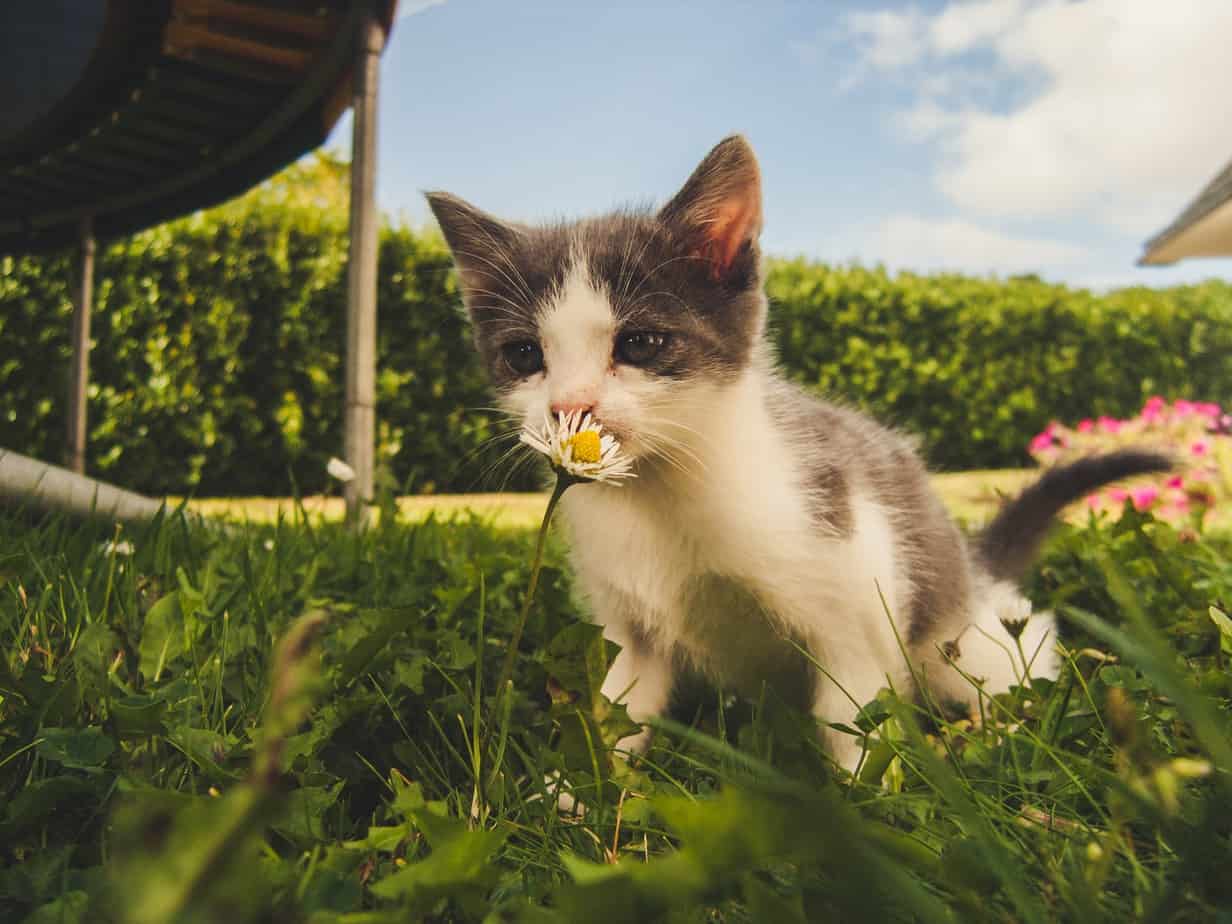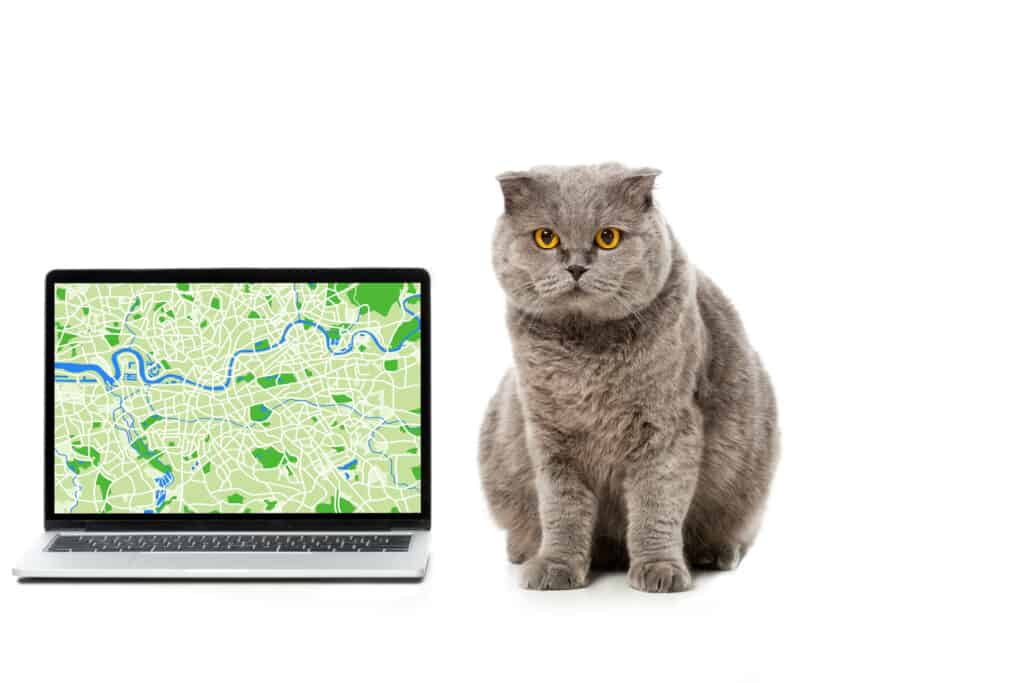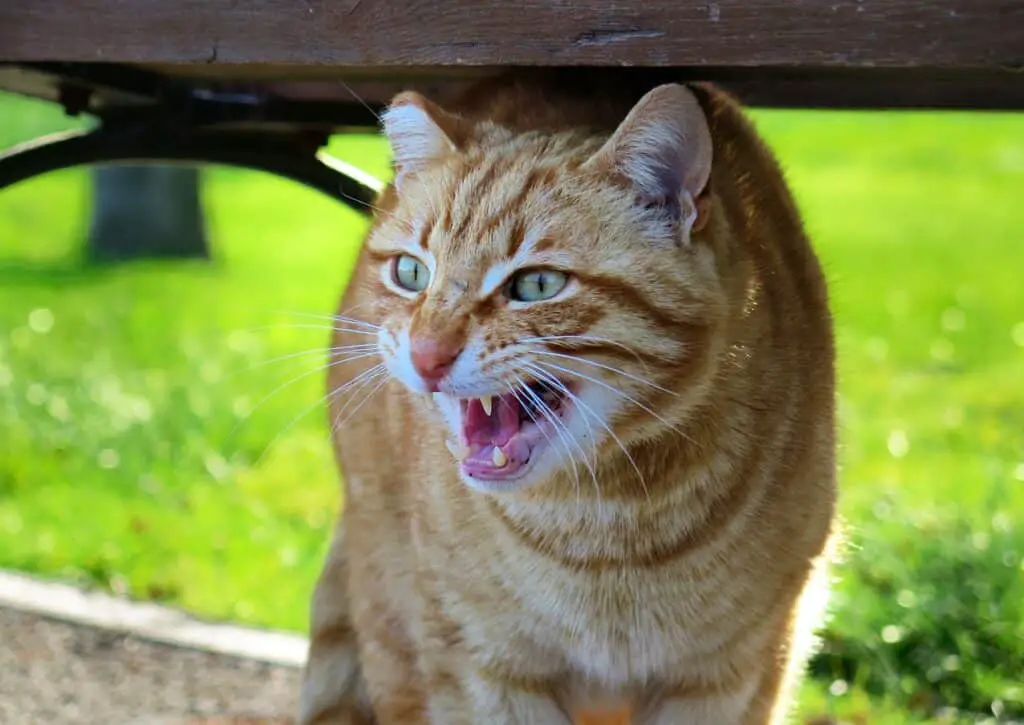It’s no secret that both cats and dogs have a superior sense of smell. According to Wikipedia, a cat’s sense of smell is 9 to 16 times stronger than humans.
With this strong sense of smell, it is not surprising that cats can despise some of the smells in our homes. We will list the smells that your cat hates most. This knowledge can help you make your house a more welcoming place to your cat-children. Or which can be effectively used as a natural cat repellent.
Smells that cats stay away from
In the animal kingdom, the sense of smell is used for many purposes. For many animals, having a strong sense of smell is an advantage that will aid in their survival or reproduction.
Once you know that, it is not surprising that some strong smells are very unpleasant for their sensitive noses. Surprising however is that these scents are generally pleasing to humans (apart from the litterbox below).
Disliking a smell that we humans are less aware of or even like may even be the reason your cat won’t sleep in that new cat bed you bought her.
Here are the smells your cat hates the most.
Eucalyptus, menthol, and pine

Although pleasing and soothing to us, the strong scents are smells that your cat will avoid at all costs.
Eucalyptus and mint can be toxic for cats, although they would need to consume large quantities of it to be harmful.
These smells are very irritating to their noses. They can also be very overwhelming and blocking out other scents that cats depend on.
Only a small hint of these will send your cat running. This is surprising because catnip, which cats absolutely adore, is closely related to mint.
Pepper, curry, herbs and spices

Basically, any strong smelling herb or spice used for cooking by humans are unpleasant for cats.
Cats associate these smells with potential toxic foods, and they won’t go anywhere near it. We don’t advise using pepper as a cat deterrent because pepper can be toxic to cats.
So. you don’t need to worry that your cat will take a bite from your take-out Indian curry.
Citrus fruits
This one is well-known, and many natural cat deterrents available for sale contain citrus scents.

Because the citrus smell is so strong and will easily linger, it’s very effective in keeping cats away.
Leaving some orange peels in your garden will effectively deter cats, or some citrus spray on your furniture will keep them from scratching it up.
Contrary to popular belief, citrus fruits like oranges are not toxic to cats, but their stomachs can be sensitive to it and cause vomiting or diarrhea.
Bananas

Bananas are another example of a pleasing smell to humans or, at least, not considered a strong smell, but it is repugnant to cats.
It is likely the high amount of potassium in bananas that doesn’t sit well with cats. For this reason, you won’t see a cat anywhere near a fruit bowl.
Since potassium is also often used to make pills, that might be the reason why it’s so difficult to get a cat to swallow a pill.
lavender, geranium, strong flowery smells, and certain plants

There are several plants that cats rather not be around. They are often either toxic to cats or because their smell is so overwhelming that it blocks out everything else.
Lavender and Geranium are perfect examples of strong-smelling plans. Although these are not toxic to cats, they just don’t like it.
If you are looking to keep cats (and dogs, for that matter) out of your garden, you might want to plant some coleus canina. Cats instinctively keep their distance from these plants because it strongly resembles the spray of a skunk.
Dirty Litterbox
It’s no surprise that anyone, cat or human, dislikes the smell of a dirty cat litterbox.

The smell is repugnant for humans; imagine how that is for a sensitive cat nose… Cats will generally send you a clear message when their litterbox needs cleaning by relieving themselves elsewhere in the house.
We advise cleaning your cat’s litterbox every other day or at most every three days, also depending on usage.
Cinnamon

Cinnamon can be very pleasing and soothing for humans, but cats flat-out hate the smell.
It’s a very effective cat repellent since they won’t go near it.
Household cleaners
Apart from having strong smells, many household cleaners contain precisely the scents that humans love and cats hate—for example, lavender, citrus, cinnamon, pine, mint, and flowery smells.

That might be the reasons why your cat hides away after a good spring cleaning.
Although most cleaners are not harmful to cats, some disinfectants like Dettol are toxic to cats. It’s very easy for cats to collect these cleaning agents on their paws and digest them when licking them so, be careful.
Other cats
This is probably the most surprising entry on this list.
Cats tolerate the smell of known cats and the other cats they might live with in the same house. They can, however, become very upset and stressed out if the smell of a new, unknown cat is introduced into their territory.
When this happens, cats might get the urge to defend their territory and spray to mask the intruder’s scent.
If you’re planning to introduce a new cat into your cat’s existing territory, do so very carefully and gradually so that your cat will not perceive this as an intrusion.
Why do cats need a good sense of smell?
Having a good sense of smell is essential for some animals, including cats. If a cat were to lose its sense of smell, it could literally threaten its life.
A big testament to a cat’s smell is that cats are blind and depend on their other senses for the first couple of weeks after birth. Their strong sense of smell leads them to their food and warns them of danger.
Why is a cat’s sense of smell so well developed?
Survival
Due to its well-developed sense of smell, cats can smell danger coming. Their good nose will literally save them from potentially dangerous situations.
Their nose is used to sniff out predators or poisonous plants or foods. Whenever you notice a cat sniffing while appearing to smile, it’s really taking in the air and analyzing a particular scent.
hunting and finding food
As humans, we are often enamored by the fact that our domestic cats still have a strong hunter’s instinct.
Their sense of smell plays an important role in sniffing out prey, following a trail, and sneaking up on them.
Even though our domesticated cats no longer need to hunt for their prey, cats will often smell the food in their bowl before eating it. This is both to make sure that they’re not about to eat something dangerous to them, but also because cats can’t focus their vision very well on things up close.
Recognizing danger
Cats are really good at keeping themselves out of potentially dangerous situations. All their senses are tuned to recognizing danger, and smell plays an important part in achieving that.
Marking and recognizing their territory
Cats are very territorial creatures. Although they can live in groups and tolerate other cats in their territory, they mark their territory by spraying and recognizing other group members’ smell.
Social interaction
Cats make a lot of use of pheromones to communicate with each other. Actually, it is their main mode of communication because they usually only use meowing to communicate with people.
In their mouths and cheeks, cats have glands that they can use to rub pheromone on items, people, or other cats. Basically, that’s saying, “this is mine, don’t touch it”.
Another way cats leave their smell to communicate is by spraying. It means, “This is my home, my place. Go away, or I’ll attack you”.
Finding a mating partner
When “in heat,” female cats excrete a very potent chemical signal that male cats can detect over miles.
When they spray, male cats leave behind a message about themselves that helps the female cats determine their qualification as a mate.




